our history
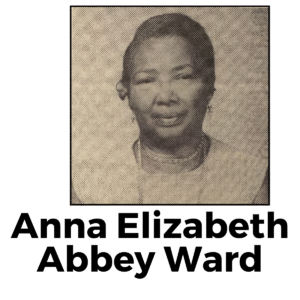
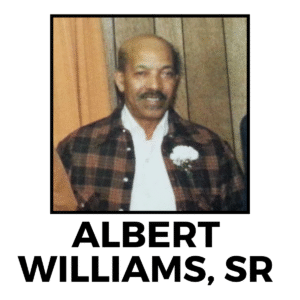
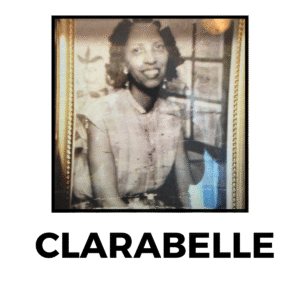
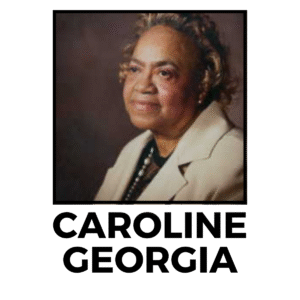
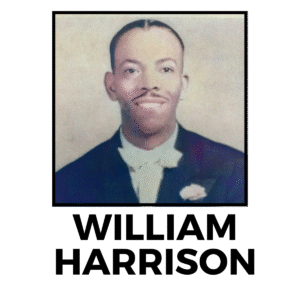
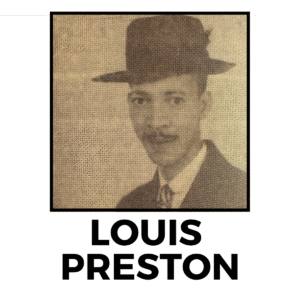

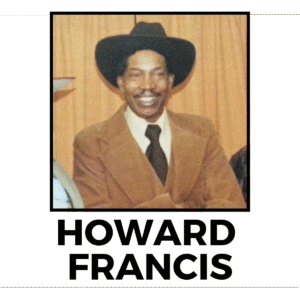
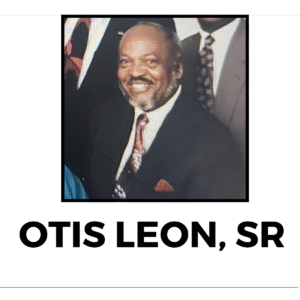
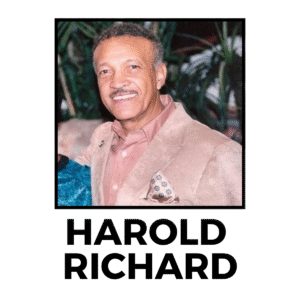
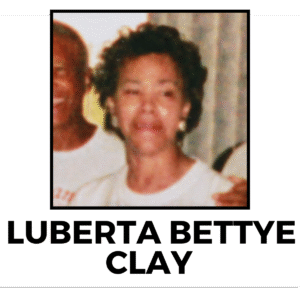
Williams Family Origin
As we gather together, we can’t help but reflect on how meaningful it would be to hold a complete record of our family’s rich and vibrant history. While we may not have every detail from the earliest days of our ancestry, what we do have is deeply valuable—and worth preserving and celebrating.
This small but powerful piece of our family story reminds us of where we’ve come from and who we’ve been. It offers a window into our shared legacy and inspires hope for an even brighter present and future. With pride and love, we share this history—knowing that our story continues to unfold with each new generation.
(Text slightly modified from August 1983 Family Reunion)
Milo Jackson and Caroline Griffith
As we come together for this year’s family reunion, we take a moment to honor and reflect on the remarkable legacy of our ancestors—men and women of resilience, faith, and vision. Though we may not hold a full record of every moment in our family’s history, the story we do know is one of courage, determination, and enduring love. At the heart of that story is Milo Jackson—our grandfather—and his wife, Caroline Griffith Jackson.
Our grandfather, Milo Jackson, was born in Arkansas during the darkest days of American slavery. Despite the harshness of those times, he grew up bold, resilient, and full of conviction. As a child, he contracted smallpox during an epidemic—a disease that was often fatal in those days. With no medical care and little comfort, Milo survived. This was the first of many battles he would win in a life that defined perseverance.
Fueled by a desire for freedom and justice, Milo escaped the bonds of slavery and joined the Union Army. He fought in the Civil War alongside other Black soldiers in the fight against the Southern Confederacy and the institution of slavery. His courage not only helped shape the future of our country, but it laid the foundation of pride and progress for generations of our family.
After the war, he made his way to Missouri and reunited with his parents who had settled in the Hannibal area. There, he planted new roots. Milo married Caroline Griffith, and together they built a life founded on hard work, land ownership, and community service. The couple raised thirteen children on a farm located on James Road, about three miles west of Hannibal.
“Grandpap,” as he was lovingly called, was more than a farmer—he was a businessman. He raised livestock and operated a local garbage collection service, a smart enterprise that not only supported his family but also provided sustainable feed for his animals. He was ahead of his time in his entrepreneurial thinking.
Beyond business, Milo was a pillar in his community. He was a founding member of Allen Chapel A.M.E. Church in Hannibal, where he gave generously of his time, resources, and leadership. A proud Mason, he also held the highest degree classification in the Grand Lodge.
Though financially successful for much of his life, Grandpap suffered heavy losses late in life after entrusting his business affairs to an educated man he believed to be honest and capable. Unfortunately, this trust was misplaced, and much of his wealth was mismanaged.
Even so, Grandpap remained strong in spirit. In his later years, after the passing of Grandmother Caroline, he moved to the Union Army Federal Home in Leavenworth, Kansas, where he spent his final days among fellow veterans. He passed away in the spring of 1927 at the age of ninety-one and was laid to rest in Hannibal on April 13th of that year.
Among the thirteen children born to Milo and Caroline, their seventh child, Frances Rosetta Jackson, holds a special place in our hearts. Frances became the vital link in our family’s continuing story—the bridge between past and future. Through her, the next generations came forth, and it is because of her that we gather today to celebrate this powerful heritage.
As we reflect on the lives of Milo, Caroline, and Frances, let us carry forward their strength, faith, and sense of purpose. Their story is our story—a legacy not just of survival, but of triumph. We are the living testament to their dreams and sacrifices, and it is now our turn to honor their memory by continuing to build, uplift, and love.
Frances Rosetta Jackson and Howard Williams
Frances Jackson, affectionately known as “Frank,” was born on November 25, 1883, in the Jackson family home in West Hannibal, Missouri. She attended Douglass School and grew up alongside her siblings in a lively household. From a young age, Frances exhibited a spirited and likable personality, often assisting her mother with household chores and delighting in dance.
Her vivacious nature caught the attention of Howard Williams, a young man from Marion County, Missouri. Their courtship blossomed into a deep and enduring love, leading to their marriage in 1903 with the blessing of Frances’s parents. Together, they established their home on what was then Pine Street (now Woodson Street) in Hannibal, where Howard built a sturdy house with his own hands.
Frances and Howard’s family grew to include thirteen children: Anna Elizabeth, Albert (“Bubba”), Clarabell, Caroline, William, Louis, Gertrude, Howard Francis, Otis Leon, Harold, and Luberta (“Betty”). Two of their children died in infancy. Despite the challenges of raising a large family, including financial hardships and the trials of global events, the couple remained devoted to their children, emphasizing education, recreation, and community involvement.
Tragedy struck in 1946 when their son Louis Preston, an accomplished athlete, passed away at the age of 32 after a prolonged illness. The following year, Howard succumbed to cancer at the age of 63. Frances, demonstrating remarkable resilience, continued to lead the family as its matriarch. She faced further sorrow with the loss of her daughter Clarabell in an automobile accident.
In recognition of her dedication, Frances was honored on Mother’s Day in 1960 by the Hannibal community. The Hannibal Courier-Post highlighted her as a 77-year-old mother of 13 children, with 42 grandchildren and 36 great-grandchildren.
On November 24, 1965, one day before her 82nd birthday, Frances passed away peacefully at home at 2709 Woodson Street, the same place where Howard had died years earlier. Both were lifelong, devoted members of Allen Chapel A.M.E. Church, co-founded with the help of Frances’s relative, Milo Jackson.
Their daughter Anna Elizabeth passed away ten years later on May 27, 1977, in Maywood, Illinois, after a battle with cancer — the same illness that had claimed her father. In the years that followed, more of Frances and Howard’s beloved children transitioned from this life.
Albert “Bubba” Williams, the second-born son, passed away on September 27, 1988. He was remembered as deeply endearing, with a heartwarming presence in the family. Then came the loss of Howard Francis Williams, who died on November 9, 1994, followed by Otis Leon Williams, Sr. on March 2, 1997, both strong sons whose lives reflected the values their parents instilled.
Caroline Georgia Range, their gentle daughter with a steadfast spirit, passed on June 28, 1998, and Luberta “Bettye” Williams-Clay, the baby girl always cherished by her father, joined her siblings in rest on June 15, 2006. Later that same year, the family mourned the passing of William Harrison “Uncle Cat” Williams on October 26, 2006, known for his charisma and enduring strength.
Their brother, Harold Richard Williams, transitioned on September 17, 2007, followed by the family’s eldest living daughter, Gertrude Rosetta Williams, who lived a long and full life, passing on October 22, 2015.
Howard Williams
Being the head of a family is never easy, but leading a large family during the Great Depression of the 1930s was an almost insurmountable task. Nevertheless, Howard Williams, the patriarch of the Williams Clan, rose to the challenge with remarkable grace, resilience, and pride in his family. He also possessed a sharp sense of humor that helped sustain him through tough times.
Howard was born in Palmyra, Missouri, on July 24, 1884, to a young mother, Lula—a beautiful white woman—and a father named Harrison. Though his time with his natural parents was brief, he was lovingly adopted by the Roach family. His adopted family was led by a deeply religious and strong woman affectionately known as “Big Aunt Sarah.” Howard always spoke warmly of his adopted family, cherishing the love and kinship he experienced from them—including his much-loved sister, Big Aunt Sarah’s daughter, and the many aunts, nieces, nephews, and cousins who became his own.
A bright and gifted child, Howard had a very fair complexion, twinkling brown eyes, and curly brown hair. A family joke often recalled how he was mistaken for the white owner of the department store where he worked. In the era of segregation, he was frequently separated from his Black family by white attendants who mistakenly directed him to “whites only” areas—only for Howard to gleefully return to his loved ones, much to their embarrassment.
Despite this, Howard was a deeply patriotic man. He proudly displayed the largest American flag in the neighborhood on numerous occasions each year, a quiet but bold declaration of his belief in the country and its promise.
Known affectionately as “Papa” or “Daddy” within the family, Howard was largely self-educated but enormously talented. He was a skilled demographer, mathematician, and electrician, as well as an expert carpenter, plasterer, and paper hanger. He even dabbled in music and was an avid reader, with a deep appreciation for everything from newspapers and manuals to periodicals and geographical journals.
He was also a fierce competitor with a passion for games—croquet, horseshoes, marbles, checkers, and even small game hunting. Whatever the game, Howard played to win and often did.
Above all, Howard was a man of unwavering integrity. He refused to accept social aid of any kind and took pride in working as an independent laborer. He served as a maintenance worker at the local public school and at Sonnenbergs Department Store in Hannibal. A strict believer in “pay-as-you-go,” he opposed credit and never carried a grocery or utility bill past its due date. His lifestyle was never flashy, but it was always stable and respectable.
He never shied away from hard decisions or difficult situations—he stood his ground with quiet strength when needed. Yet he was a deeply gentle man at home, moved to tears by the suffering or hardship of those he loved.
Howard Williams—Papa, Daddy—was a man of pioneer strength, quiet dignity, and enduring wisdom. He gave his family a priceless legacy of love, hard work, and perseverance. His life is a story worth telling and a heritage worth honoring.
